Best external SSD for gaming on PC, PS5, and Xbox Series X | PC Gamer - begleydowasud
Best external SSD for gaming happening PC, PS5, and Xbox Serial X
Included in this guide:
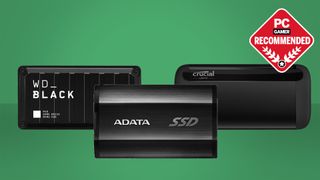
The best outside SSD testament be i of the most primal investments you make in your PC. Where HDD stumbles, SSDs give you the speed, reliability and size inevitable to take on todays games, especially as game install sizes billow with every new release. With PC gaming, or even on console, an outer SSD can be a necessity, especially as the storage space of play laptops, PlayStation 5, or Xbox Series X/S can be quite limiting. You can even run games directly from it, OR use of goods and services it to transfer saves files.
The world-class USB Type-C drives are your better bet, giving upfield performance in excess of internal PC SSDs from a few generations agone. Some foreign SSDs now support ascending to 2GB/s of raw bandwidth. Admittedly, that's a long way off the in vogue PCIe 4.0 M.2 drives for PCs, not to mention the crazy-quick integrated computer storage in the new Microsoft Xbox Series X and Sony PlayStation 5.
The Xbox Series X/S official expansion SSD is non only expensive information technology's also proprietary, so stool't be utilized with separate devices—whereas USB Case-C is the other universal monetary standard. As for Sony's PlayStation 5, its internal M.2 SSD slot has at long last been enabled, but USB Type-C is still a tempting alternative for easy expansion.
Whichever way you go, and what kinda budget you're look at, we consume you covered. The recommendations under are exclusively successful up of products we've tried and tested ourselves, and they're all worthy of expanding your Personal computer or console's storage in a lif.
Best external SSD
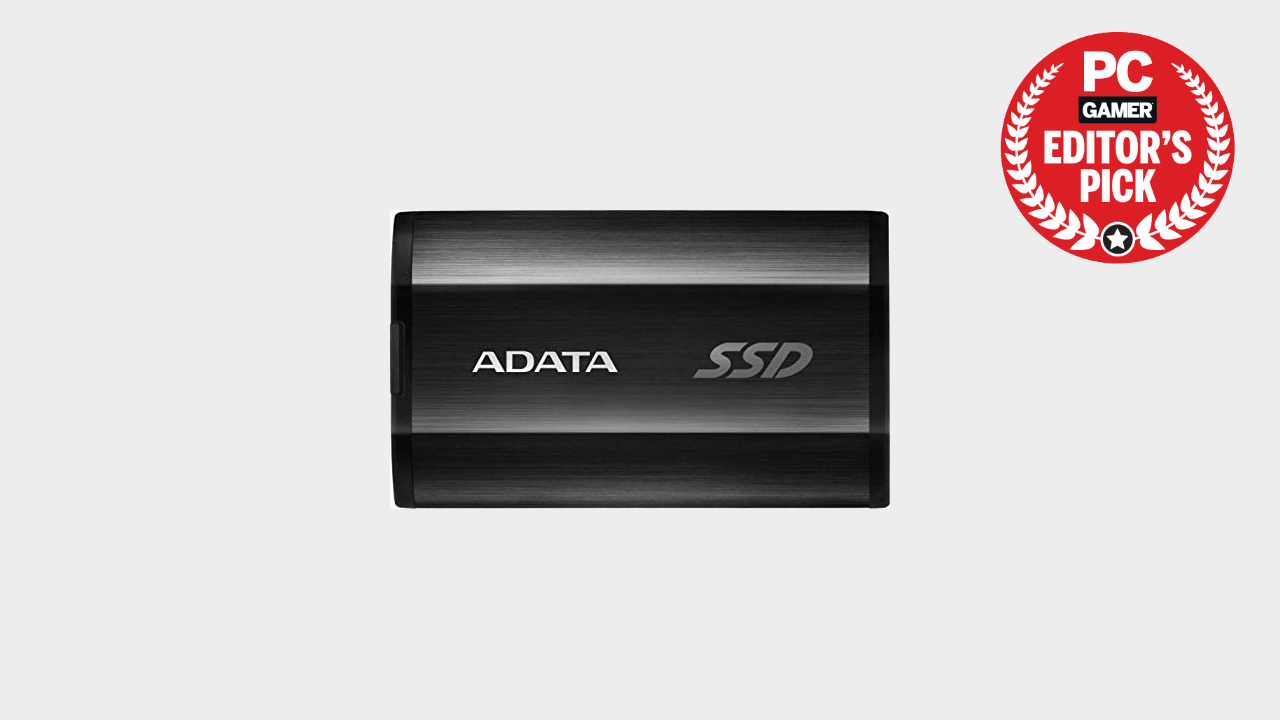
NVMe inside? Yep. TLC NAND computer memory? Affirmative. IP rating for increased lustiness, including waterproofing? Check. All for an beautiful price? Addicted. The ADATA SE800 Immoderate FAST 1TB really does have quite a trifle departure for it.
Information technology starts thereupon M.2 NVMe drive, bridged to a USB interface. In that case, it's a 10Gbps USB 3.2 Gen 2 user interface preferably than a 20Gbps USB 3.2 Gen 2x2 connection. But this drive is still claimed to cost good for 1GB/s data transfers in both directions. Lest you have forgotten, that's around twice as fast Eastern Samoa whatsoever SATA-based drives, including internal SSDs connected natively via SATA.
That makes it unequalled among these SSDs, and, what's more, inclined the agonistic pricing, you're getting that Information processing rating effectively for free. Performance-wise, in testing, the ADATA delivers in the headline 1GB/s spec for ordered transfers while notching raised 4K random throughput that's comparable the contention at 21MB/s for reads and 40MB/s for writes.
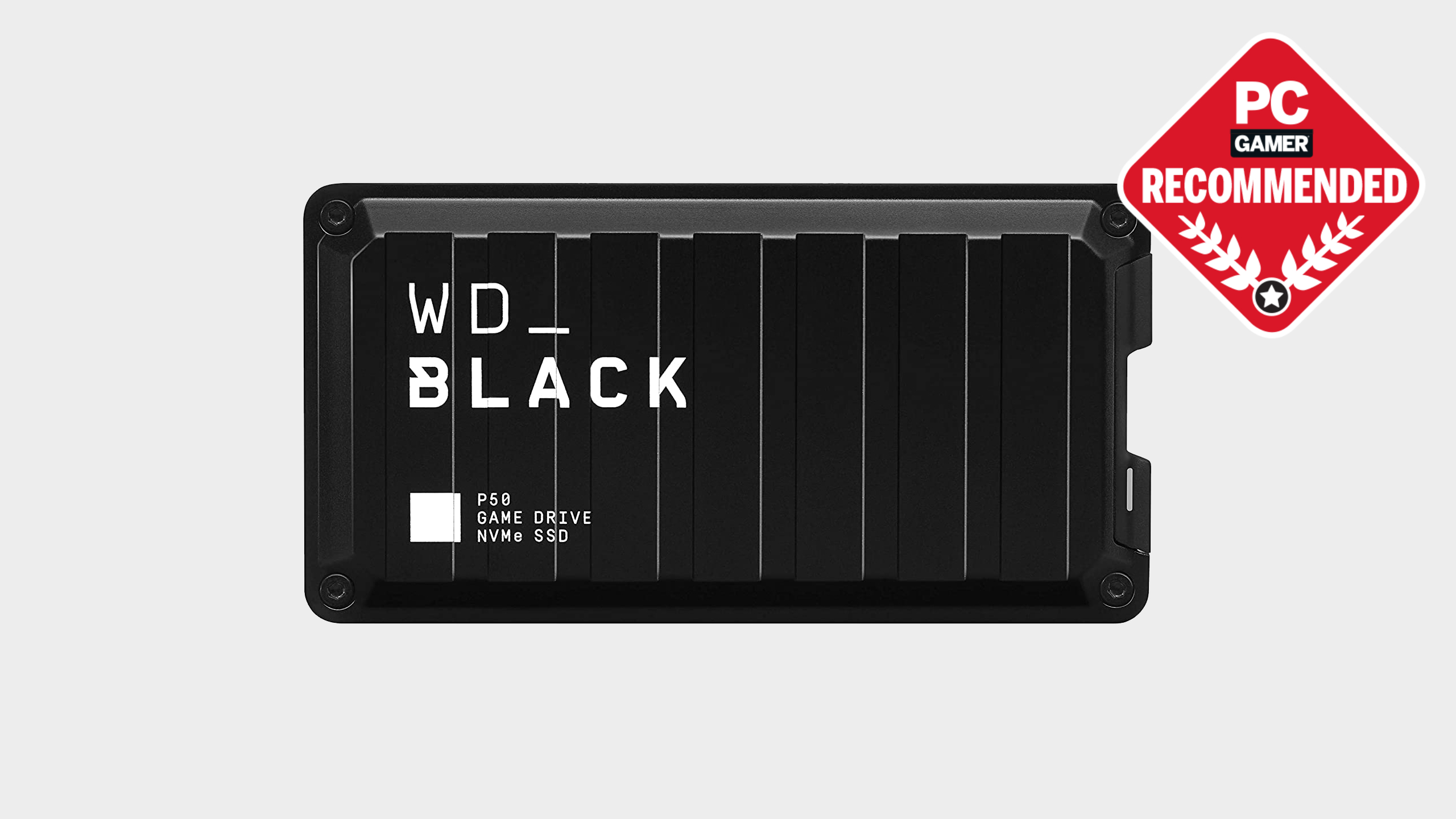
If you're looking fast USB-powered external storage for games, this is presently A full equally information technology gets. Leastways, it is in theory. The WD Black P50 Game Drive, tested here in 1TB format, and available in 500GB and 2TB flavors, is a rare breed of USB Type-C international SSD. That's because it supports the very quickest USB 3.2 Gen 2x2 20Gbps interface, which is why it's capable of register and write speeds improving to 2,000MB/s.
As for real-world performance, in footing of peak sequential, the WD Black P50 easily maxed stunned the 10Gbps connection of our test PC, registering just over 1GB/s in both directions. It's likely capable of the publicised 2GB/s with the right interface. Sustained performance is a puny less arresting, with performance dropping to roughly 375MB/s after around 30GB of information transfer. Random access code performance is reasonable rather than spectacular, with 22MB/s reads, and 40MB/s writes for the 4K QD1 metric.
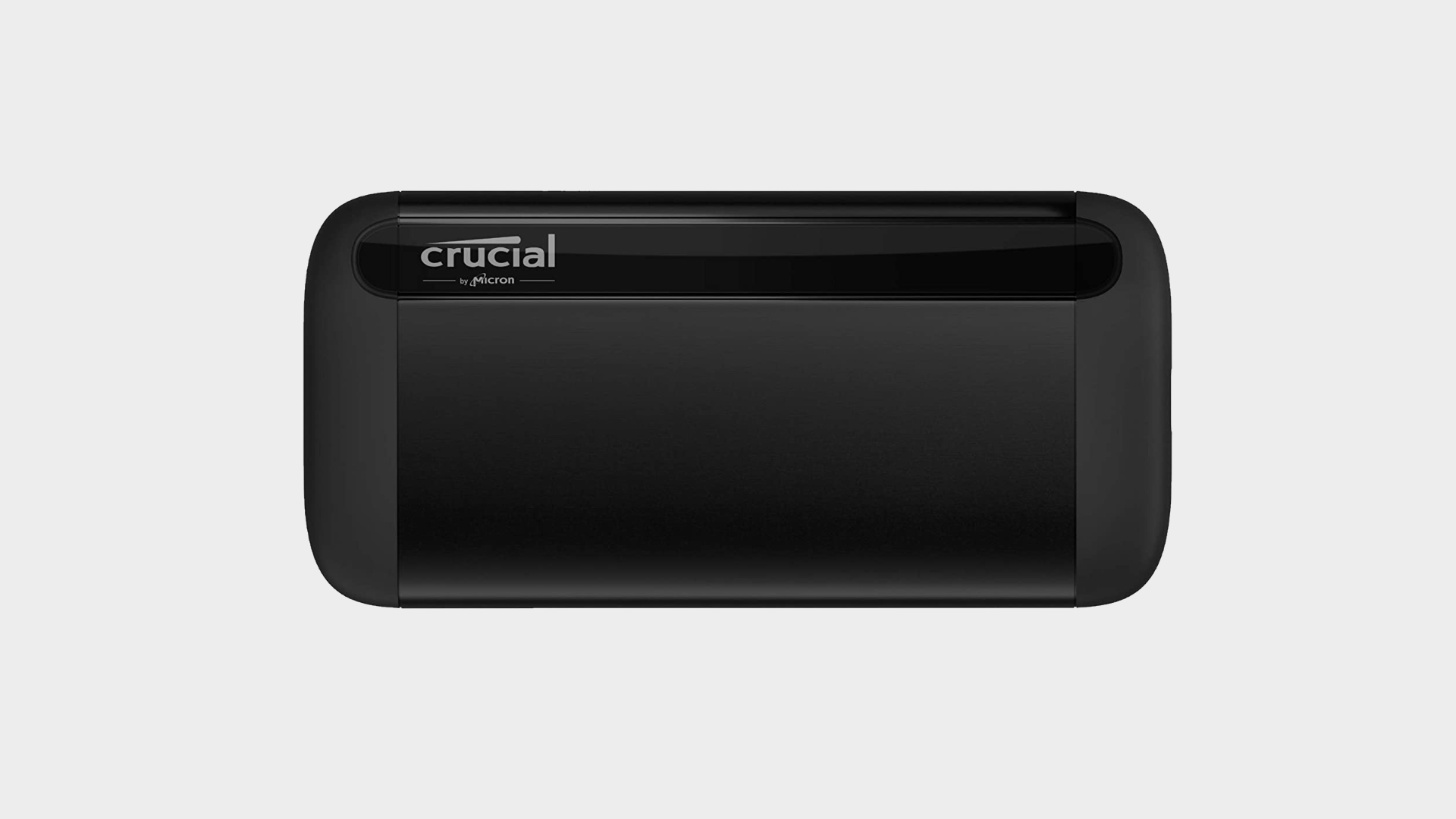
If you deprivation information technology all, you're going to have to pay for it. So, sometimes it makes sense to via media. Enter the Life-or-death X8 2TB USB Type-C SSD. It's not the absolute fastest external SSD on Earth. Merely IT is quick. It's extremely large. It's built into a really solid-impression metal case. And information technology's attractively priced. In fact, right now, information technology's lendable at Best Buy for $239. That's over $150 less than WD's Black P50 Game Drive in 2TB trim.
And so it proves in our testing, with the Crucial X8 good for just under 1GB/s for successive transfers in some directions. 4K random performance is comme il faut, too, for this class of drive, with reads of 27MB/s and writes conscionable ended 40MB/s at QD1. Given the utilization of QLC NAND, extraordinary big interrogation point is sustained performance. However, while the Determinative X8 does drop down to 380MB/s with free burning traffic, in our testing, it maintained that level for many tens of Gigabyte, which puts IT along a par with the to a greater extent expensive WD drive.
Best gaming laptops | Unsurpassable gaming keyboards | Best gaming mouse
Best play motherboards | Best art cards | Best play monitors
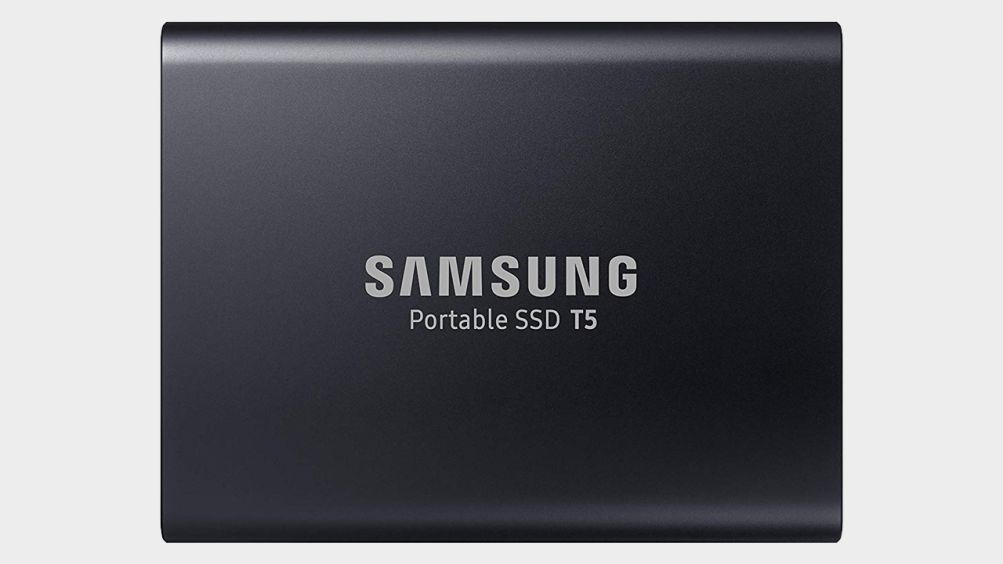
For the power exploiter who wants it all—speed, capacitance, and portability—and who is willing to pay a insurance premium for IT, Samsung's Portable SSD T5 is one of the slickest solutions out there.
Information technology's faster than any USB flash drive available, it has the capacity of a hard drive, and you can stockpile it inconspicuously in your pocket. This spunky little drive shares the same DNA every bit Samsung's 860 Evo SSD, hardly in a little package.
Speed doesn't issue forth at the expense of storage space either. Piece it's easily to protrusion into the depot ceiling of a 32GB, 64GB, or even a 128GB USB flash drive, you'll find at that place's much more external respiration room when transaction with terabytes of space, which is what the T5 offers. Whereas the first propagation T1 screw-topped out at 1TB, Samsung doubled the maximum capacity of the T5 to 2TB, a result of upgrading from 32 to 48 stacked layers of V-NAND flash memory cells for a denser constellation.
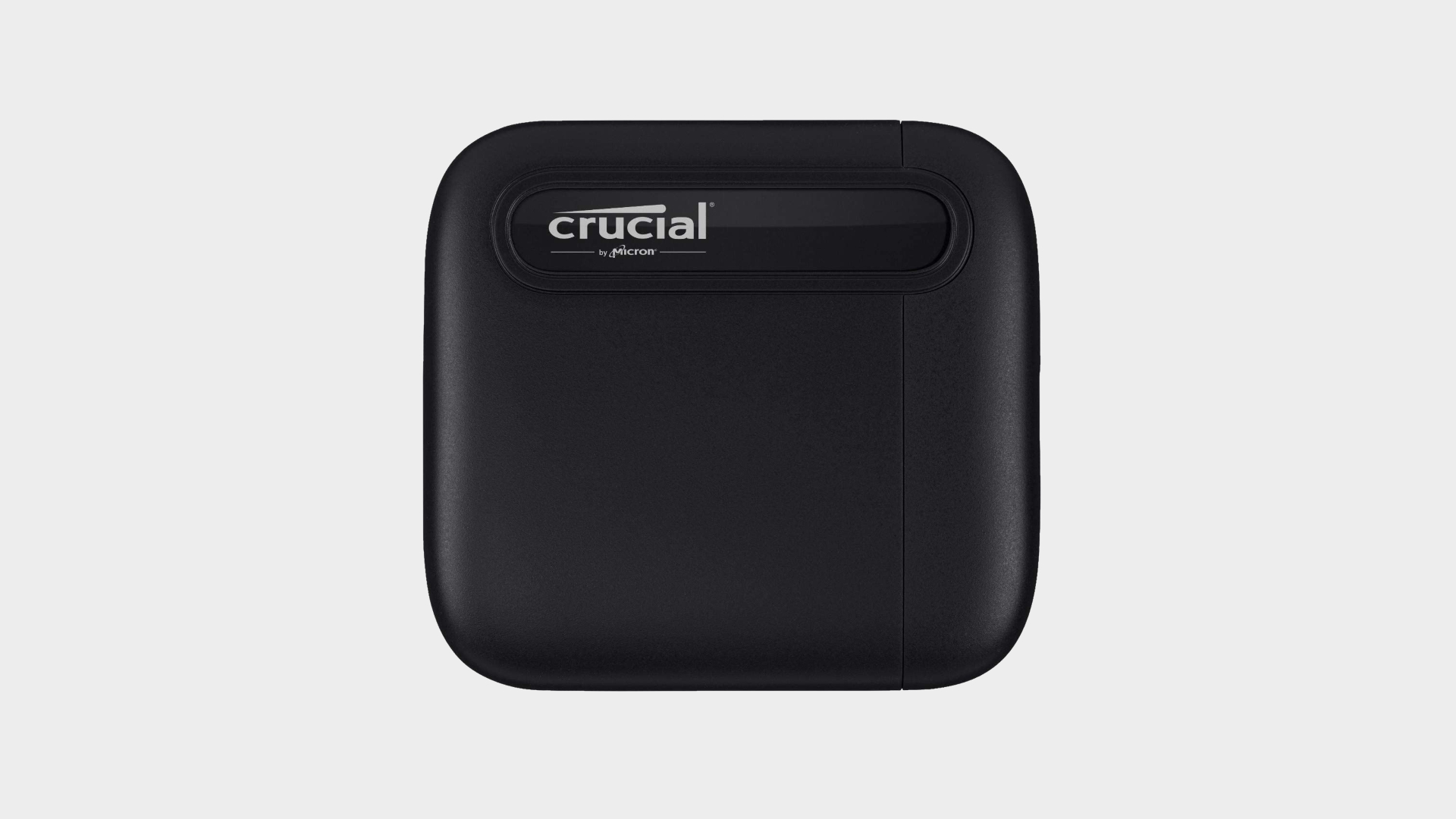
There's a fine line between compelling and compromised when it comes to external USB Type-C SSDs. For our money, the Decisive X6 falls happening just the wrong side of that divide.
Incomparable of the belt-on implications of that discipline difference is that the X8 has a fully 2GB of Drachma cache where the X6 has no the least bit. The X6 does support features like Trimming passthrough, which isn't always the type on cheaper USB drives and ensures that performance should be sustained in the longer term. It's also very compact for a 2TB drive, measure 69 x 64 x 11mm.
Eastern Samoa for crude carrying into action, peak write speeds are a bit disappointing at 378MB/s, as is the 12MB/s 4K QD1 drop a line throughput. It's as wel worth noting that compose performance eventually drops to 180MB/s with sustained throughput. However, in our testing, it never dropped lower than that, even with ended 50GB of continuous traffic.
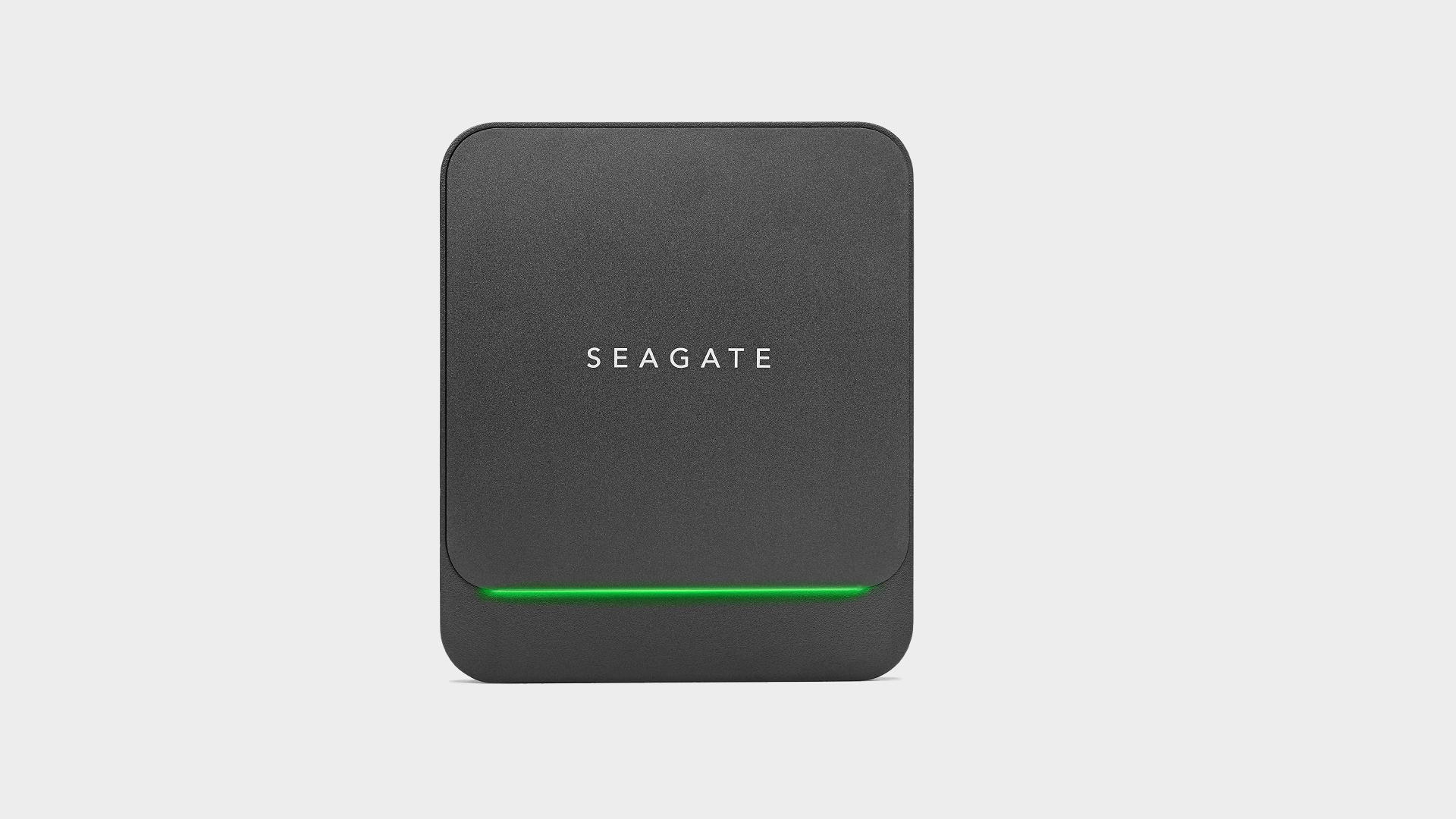
This is not the fastest USB Type-C SSD you john buy for gaming. Only and so, it's far from the near expensive. Compared, enounce, to the WD Black P50 Crippled Ride, the branding of the Seagate Barracuda Allegro SSD 1TB looks like a bit of stretchiness. Rated at 540MB/s for reads and 500MB/s for writes, information technology's merely nowhere near as quick.
Then again, that crenellated WD Drive with its NVMe SSD and USB 3.2 Gen 2x2 20Gbps port costs roughly 75 percent more for the same 1TB of capacity. Moreover, a great deal of that increased performance isn't purchasable on most PCs and completely consoles ascribable limited user interface support.
A with child hand that is. But not all. The Seagate Barracuda Allegro SSD 1TB is basically a SATA SSD behind a USB bridge, which agency performance is limited to 6Gbps despite the drive's 10Gbps USB 3.2 Gen 2 interface. What's more, in our testing, the Seagate Barracuda Fast SSD 1TB couldn't even return its modest claimed carrying into action, clocking just 306MB/s for sequential write performance. It also drops down to just 190MB/s with uninterrupted multi-GB workloads.
Arguably even Sir Thomas More problematic is the existence of NVMe-based drives for similar money. The ADATA SE800 Radical FAST 1TB, for representativ, is close to twice as prompt for point sequential performance. It's a pity because the Seagate Barracuda Fast SSD looks slick with its sleek enclosure and LED status floodlighted. And Seagate's file cabinet syncing and backup software is handy. But there's better performance to be had elsewhere.
The best external SSDs FAQ
Should I corrupt an NMVe or SATA external SSD?
Performance-wise, your choice is between a drive based on the SATA user interface with a bridge to USB, or an NVMe port, over again behind a USB bridge. SATA-supported USB Character-C drives top out at around 540MB/s peak functioning, while the NVMe options up the ante to a maximum of 2GB/s.
At least they do, in hypothesis. To achieve those peak speeds, you'd need a USB 3.2 Gen 2x2 port with 20Gbps capability. That's something that remains relatively rare along PCs and laptops and isn't accessible on any console table, including the new Sony PlayStation 5 and Microsoft Xbox Series X. Alternatively, you'll find most high-pep pill USB ports top come out at 10Gbps.
Indeed, it's unlikely that USB 3.2 Gen 2x2 bequeath e'er become widely old. Instead, USB 4 will likely take over, increasing bandwidth to 40Gbps. But the good news is that USB 4 is backward harmonious with USB 3.2 Gen 2x2. So, information technology will be possible to extract maximum performance from a USB 3.2 Gen 2x2 20Gbps drives in the future victimization a USB 4 interface.
What type of NAND ostentate should I hold up for?
Interface specification isn't the only deciding factor when it comes to performance. Features like controller specification and the type and quality of NAND flash used are also epochal, though information technology's not always easily to discover the finer inside information. Many manufacturers are reluctant to quote round specifications. For instance, drives with four-level QLC NAND memory will tend to have worse underlying performance than those with three-base hit-layer TLC memory.
Soma factor and other frills should also be part of your calculations. Some drives are built to be particularly robust; others include extras like hardware encoding, condition LEDs, or even fingerprint scanners for added security. Some of those features reasonably tangential to the staple remit of providing high-public presentation storage infinite for a games library. But you might also be looking a drive that keister serve more than cardinal role.
Source: https://www.pcgamer.com/best-external-ssd-for-game-storage/
Posted by: begleydowasud.blogspot.com


0 Response to "Best external SSD for gaming on PC, PS5, and Xbox Series X | PC Gamer - begleydowasud"
Post a Comment